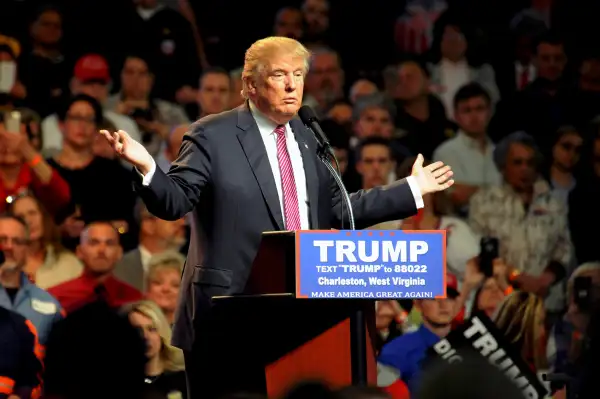Could a President Trump Really 'Cut a Deal' on the National Debt?

Presumptive Republican presidential candidate Donald Trump yesterday advanced some, ahem, interesting ideas on the economy yesterday, advocating major spending on U.S. infrastructure, for which he’d borrow heavily. “I’m the king of debt,” Trump told CNBC.
And as for paying it back? Well, if the economy crashed, “you could make a deal,” he explained.
The New York Times’ Binyamin Appelbaum zeroed in on that part this morning in a story that outlined just how far away from mainstream thinking Trump finds himself. In a word, no other candidate in history has floated the idea that the U.S. should not pay its debts.
It’s pretty much a bedrock principle of U.S. policy—and the world economy—that the U.S. will pay its debts. There are countries that have “made deals” on their debts. Greece and Argentina come to mind. It can’t hurt to review the reasons why that’s not a path open to the U.S.:
- There is no process for making a deal on government debt that doesn’t start with a default. Governments have done this from time to time since the Middle Ages; Russia defaulted on its debt in 1998. The result of a “sovereign default,” without exception, is that you can no longer borrow any more money, companies that do business with the government don’t get paid, unemployment skyrockets, and the currency collapses.
- One reason why it would be especially hard to “make a deal” on U.S. government debt is that it is not held by just a few people or companies. U.S. government debt, in the form of Treasury bonds, is held by U.S. banks, U.S. citizen-savers, foreign governments, and pension funds. The United States could just announce that it would pay less (say, 80 cents on the dollar). Many holders would have no choice but to take it. Yes, that means that if you put some money in Treasury bonds and the government just announced it would only pay you back half, then you’d probably have to settle for that. If you want to call that, “making a deal,” go ahead.
- The entire world economy relies on the ability of the U.S. to pay its debts. A U.S. default would make investors instantly lose confidence in the ability of other governments or corporations to keep making payments on their debts. The European economy went into a tailspin over concerns that Greece and Spain would not pay their debt. Spain climbed out of its mess; Greece was bailed out by the rest of Europe, with harsh restrictions.
Let’s be clear: The prospect of Greece defaulting was an international crisis. Any hint that the United States could default would be orders of magnitude worse. It would make bond markets crash as investors assumed that other governments would take the same path. And it would certainly make world stock markets crash. Typically, when investors around the world are worried, they put their money in the safest investments they can find. Until now, that’s often been U.S. Treasury bonds. Obviously, if the U.S. doesn’t pay its debts, that won’t work anymore.
Ultimately, in the worst cases, countries do “make deals” on their debt. That happens when everyone else has given up hopes of getting paid, and a few hedge funds buy up the debt that’s left and negotiate directly with the government. Argentina just emerged from 15 years of this kind of negotiation.
It wasn’t exactly a barrel of laughs for Argentina’s citizens, who endured years of recession, and wound up paying most of the debt anyway. One warning in particular is worth underlining: Argentina’s creditors went so far as to try to repossess Argentina’s presidential plane. It's safe to assume that the prospect of negotiating the return of Air Force One is one that even Donald Trump doesn't look forward to.
